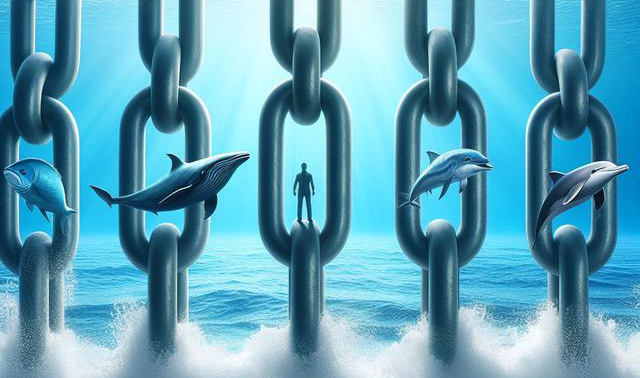Grey Whales - Can’t stand the heat?
Over the last four years there have been many reports and articles about the increase of dead Grey whales washing up on coastlines of the States and Canada. As with all these tragic moments, the bodies are examined to determine cause of death. You’d be forgiven for thinking that in most cases these giants of the ocean were killed by plastics. We’ve heard so much about this. But in this case, something even more worrying and tragic is occurring.
The main conclusion as to why these Grey whales, over 700 reported so far, have died is as a result of starvation. On our boat when we are out with guests we talk about how everything is linked together. In fact one of our other blogs by Bea talks about the importance of whale poo and how this fuels a food chain.

But, stepping back even further from that is the fact that in the Arctic, a little Amphipod is struggling to survive. Why? It eats algae, and is a big feature, even though it is small, of controlling brown algae. This amphipod, the Benthic Amphipod, needs to eat algae blooms that are on the underside of sea ice. The sea ice is drastically reducing. Again, we know this and have seen other iconic animals such as Polar bears struggling with the lack of it.
I said everything is connected? Well, think about the chain in the same way we talk about our little environment in Torbay. For us, the Sea Grass is important. It’s home for schools of fry, Sea horses, crustaceans, and much more. Remove the Sea Grass, you lose a valuable nursery for the fish in our sea. The fish feed the Dolphins, Seals, and yes, even us through our fishing industry. We won’t start talking about nets that damage the sea bed right now.
Take that little simplistic linked series of things and look at the Grey Whales.

(Carlos Valenzuela, CC BY-SA 4.0 https://creativecommons.org/licenses/by-sa/4.0, via Wikimedia Commons)
With the increase in global temperatures, something we can and should be controlling. It reduces the Sea Ice, reduces the amount of algae available for Amphipods, that in turn reduce the amount of food Gray Whales have. They starve.
The reduction of whales reduces one of natures great carbon stores (Read the Whale Poo blog). The average Whale can lock up 33 tons of carbon which is equivalent to driving 82,500 miles in an average petrol car. That’s driving round the equator of the planet over three times!
Everything is connected. According to the scientist involved in monitoring the situation, the number of washed up grey whales is decreasing, but this is only the ones we see. Remember that the majority of dead whales will be in the sea, and sink to the ocean floor.
We all have to remember that even though this is news from overseas, we have a direct effect on the environment that will impact animal life globally.




